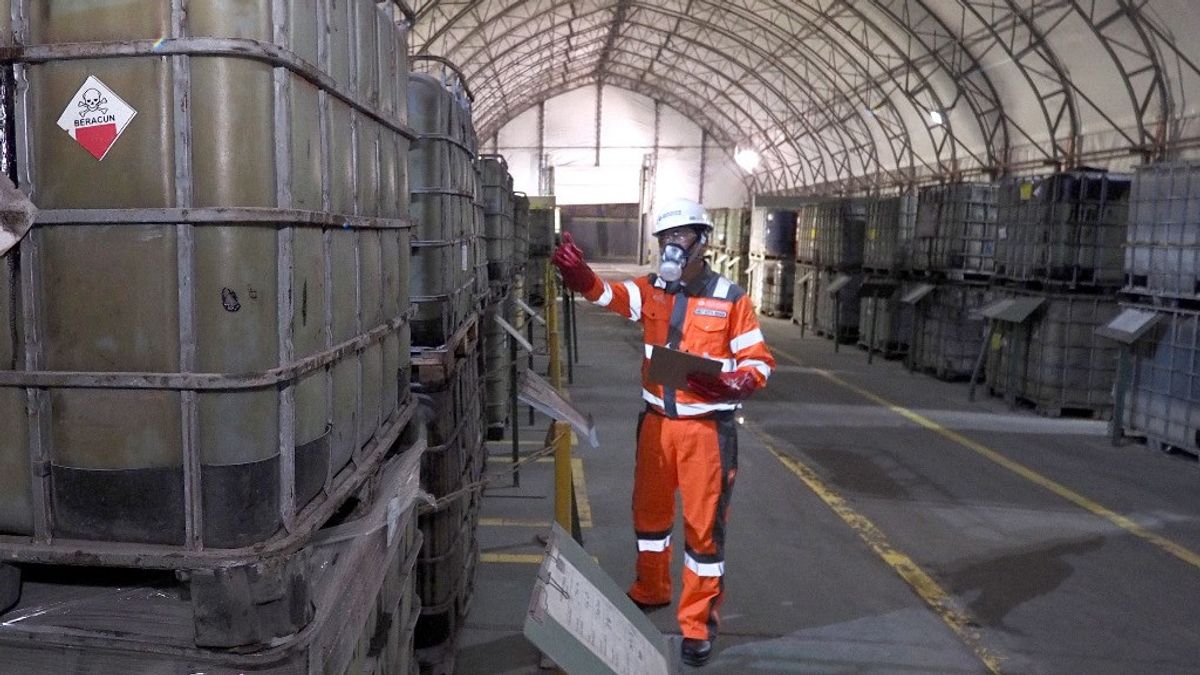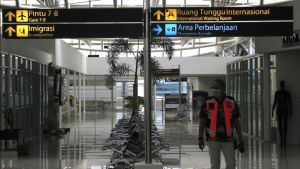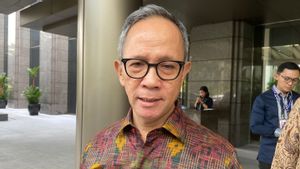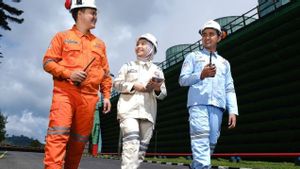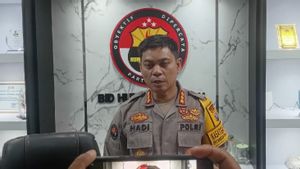JAKARTA - The ozone layer has an important role to play in protecting the earth from the dangers of solar ultraviolet radiation (UV), especially UV-B. PT Semen Indonesia (Persero) Tbk, or GIS, is committed to overseeing efforts to conserve ozone by optimizing the operation of the Ozone Destroyer Material (BPO) destruction facility in Narogong, West Java, which is the first facility in Southeast Asia.
The ozone hole in the Antarctic continent that was first discovered in the early 1980s has increased the world's public attention and prompted global action to carry out recovery. The global action is known as the Montreal Protocol, an international agreement to protect ozone from harmful and destructive chemicals, such as CFC (chlorofluorocarbon) which has elements of chlorine, florin, and carbon, which are found in air conditioning or air conditioning.
The United Nations (UN)-backed scientific panel in early 2023 reported that the ozone layer was heading for recovery thanks to decades of hard work to eliminate ozone-depleting chemicals. The panel, which consists of international experts, reported that the ozone layer is expected to recover to a size of 1980 (a year where ozone holes were officially recognized) in 2066 in Antarctica, in 2045 at the North Pole, and in 2040 in other parts of the world.
The presence of ozone holes will lower its function as a deterrent to UV radiation from the sun that can cause skin cancer, damage to the eyes, and interfere with the human immune system. In fact, UV radiation can also cause damage to plants and the water ecosystem, as well as cause disease in animals.
As a company that has a commitment to sustainability, GIS seeks to participate in ozone conservation efforts according to the Montreal Protocol with the presence of the Ozon Destroyer Material (BPO) destruction facility which has been operating since 2007 and the first in Southeast Asia. The BPO destruction facility is operated by Nathabumi, which is a GIS business unit located in Narogong, West Java. Nathabumi provides sustainable waste and waste management solutions for the industrial sector and city government.
GIS Corporate Secretary, Vita Mahreyni said, the first BPO destruction facility in Southeast Asia is a manifestation of the contribution of ozone conservation efforts and preserving the sustainability of life on earth. The process of destroying BPO by Nathabibumi is carried out with a safe and environmentally friendly technology, where liquid and gas BPO waste is destroyed in cement with a temperature of 1,500 degrees Celsius stably. This BPO destruction facility owned by SIG has a BPO processing permit based on the Decree of the Minister of Environment and Forestry No. S.88/Menlhk/Setjen/PLB.3/1/2020," said Vita Mahreyni.
From 2007 to the first semester of 2023, Nathabumi has destroyed 103 tons of BPO which can damage the ozone layer, or has helped prevent the release of Greenhouse Gas into an atmosphere equivalent to 220,914 tons of Equivalent CO2. Types of BPOs destroyed include halo compounds widely used for fire extinguishers, refrigerants-CFC/HCCFC/HFC from cooling units such as AC and refrigerators, as well as SF6 commonly used in high voltage electrical equipment.
The BPO comes from various industries, food and beverage industries, pharmaceuticals, chemicals, petrochemicals, manufacturing, energy, mining, waste management, to oil and gas.
Furthermore, Vita Mahreyni said, in addition to the BPO destruction facility, Nathabib also provides B3 and Non-B3 industrial waste management services, urban waste management, analysis and waste laboratories, to drilling waste management.
SEE ALSO:
The waste and waste management system is carried out with a responsible and environmentally friendly approach through a co-processing method that utilizes high temperatures in cement removal to destroy waste and waste without leaving any residue.
Until now, Nathabib has helped more than 600 companies in Indonesia in waste and waste management that not only have a positive impact on nature's sustainability, but also on economic benefits.
"Industrial developments demand the management of waste and waste in the best way to keep nature sustainable. GIS is committed to expanding collaboration with various parties to achieve sustainable development targets (SDGs)," said Vita Mahreyni.
The English, Chinese, Japanese, Arabic, and French versions are automatically generated by the AI. So there may still be inaccuracies in translating, please always see Indonesian as our main language. (system supported by DigitalSiber.id)
